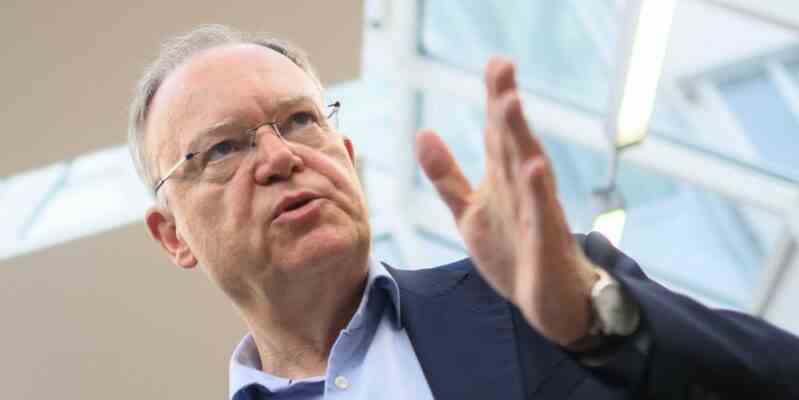Before Corona, Prime Ministers’ Conferences (MPK) were rarely the focus of public interest. But since the right line was struggled for in hours-long meetings during the pandemic, details from the ongoing consultations were repeatedly plucked out and the next day there was usually no longer any talk of a uniform course, the MPK has become another stage for political debates . It was the same again at the last meeting in early October. After a major dispute over the financing of the various relief packages, in which the states were united against the federal government, the MPK ended as a failure.
From the point of view of the federal states, the blame for this lay with the federal government. Because the decision-making processes in Berlin about the right instruments in the fight against skyrocketing energy prices have been dragging on forever, at the time of the MPK at the beginning of October there was still no finished package from which it would have been possible to calculate how the relief measures would affect the state budgets overall . And under no circumstances did the federal government want to give out more money for the states.
Söder criticizes that Scholz is not coming
When the state leaders meet in Hanover this Thursday under the leadership of the incumbent MPK chairman Stephan Weil (SPD), not much has changed in the initial situation. The fronts between the federal and state governments seem harder than they have in a long time. “There is a booming speechlessness,” says Bavaria’s Prime Minister Markus Söder (CSU). “The federal government has never been as unfriendly to the states as it is now.” It is clear that Söder blames the traffic light in Berlin. “The traffic light and the chancellor are more likely to seek confrontation.” It was very different under Angela Merkel.
The SPD Prime Minister Stephan Weil, who has to try to advance at least a few topics as the chair of the meeting, does not see that so clearly. But Weil also admits that there are “a lot of unanswered questions” between the federal and state governments. “There is a wealth of points where we see either a need for change or a need for supplementation,” says Weil.
Because this includes, for example, the completely unclear effects of an electricity price brake or the question of why the gas price brake should only take effect in March and what will be done by then. There has also been no movement so far with the big financial chunks such as a cost allocation for housing benefit, more funds for local public transport or the increased accommodation costs for refugees.
“We’re all a little groping in the dark”
It is questionable whether this will change at the MPK. Because the meeting is not just a working session between the countries, because the Federal Government will be joined by Economics Minister Robert Habeck and Finance Minister Christian Lindner. But the most important player is missing: Chancellor Olaf Scholz. Söder criticizes the Chancellor’s absence. The federal government would have had the opportunity to present new proposals. “We’re all groping a little in the dark,” says Söder about possible new federal positions. Weil is also dampening expectations of a major breakthrough. “It is absolutely clear that no decisions have yet been made in this MPK on essential issues,” he says.
The countries continue to agree on the essential points, regardless of which coalition governs there. “We will certainly come to a joint solution,” says Weil about the position of the federal states. The states want to increase the pressure on the federal government to finally come to clear decisions. “The signal from the states to the federal government will be: Please speed up.” For their part, the countries are ready to accelerate the necessary steps. “The motto has to be: Let’s go,” says Weil. Söder is also pushing for more speed and more clarity in Berlin. “The countries are simply disappointed,” says the CSU man.

